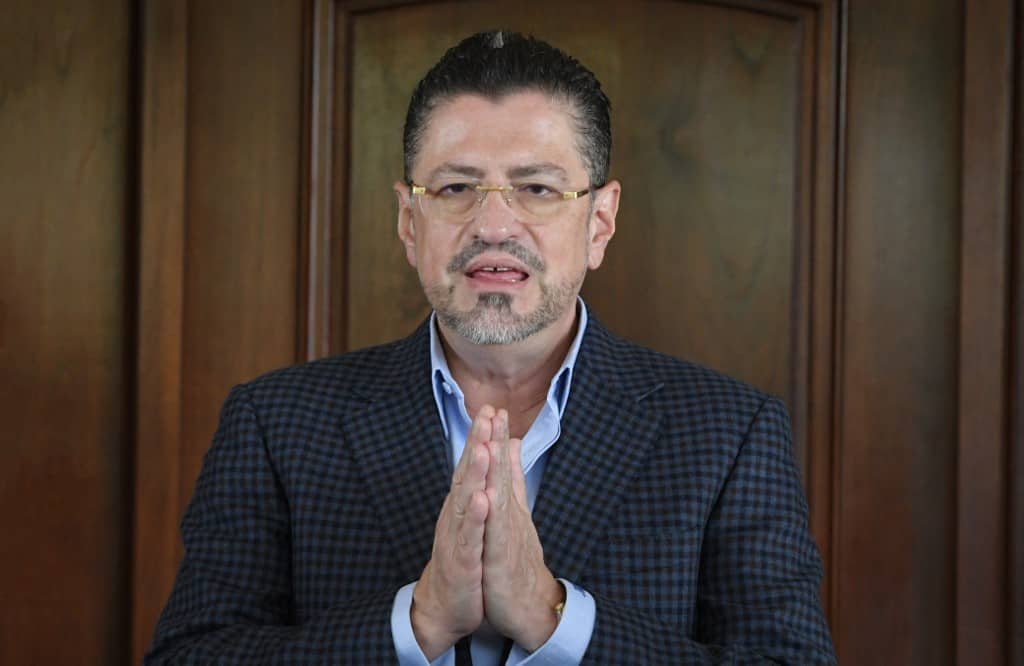Costa Rican president-elect Rodrigo Chaves met Tuesday with his ballot rival, Jose Maria Figueres, to discuss a cooperation agreement and take ideas for his government plan to “reactivate” the economy.
“There are things in his program in which we absolutely and fully agree and that we are going to promote. There are interesting details that add to my knowledge”, said Chaves after the meeting that took place at his home in San José.
“It is important to look for points of convergence in which we can advance on a common agenda. I came to ratify this to the President. The country needs us to reach an agreement to get out of this crisis”, said Figueres, former president between 1994-1998.
Costa Rica is going through a severe economic crisis, with 23% of its population living in poverty, 14% unemployed and with a public debt of some 42,436 million dollars, equivalent to 70% of its GDP.
Among the topics of agreement, Chaves, who will take office on May 8, mentioned “the urgent need for economic reactivation”, “a collaborative agenda” for Congress and the “pending inclusion of people with disabilities and indigenous people”.
In order to move forward with its proposals at the legislative level, Chaves’ Partido Progreso Social Democrático (PPSD), which won 10 of the 57 deputies in the Legislative Assembly, needs the support of Figueres’ Partido Liberación Nacional (PLN), which will have 19, to approve its government plan.
Legislative elections will be held in February, and deputies will take office on May 1. During the electoral contest, Chaves and Figueres had verbal confrontations.
Among them Chaves’ 2019 World Bank sexual harassment sanction and Figueres’ 2004 alleged corruption investigation. “What a blessing that two people who competed, today have given each other a hug (…). This shows what it is to be a democratic and respectful country”, said the future president.
Chaves added that the vice presidents on Figueres’ ballot, Laura Arguedas and Álvaro Ramírez, “impressed him for their intelligence and capacity” and hinted that he could offer them positions. On Sunday, Chaves obtained close to one million votes, for 53% of the valid votes (29% of the total), while Figueres obtained about 900,000, for 47% (26%).
Of the 3.5 million people eligible to vote, 43% abstained from voting.






